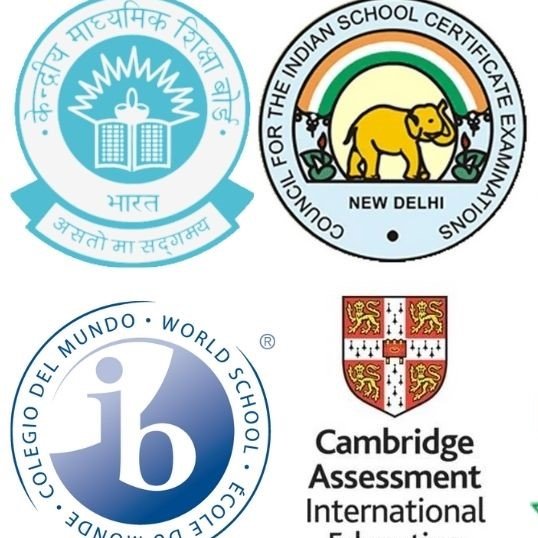Discovering the Perfect School
A Comprehensive Guide to Choosing the Right Educational Institution for Your ChildSelecting the right school for your child is a decision that can have a profound impact on their future. As parents, we want nothing but the best for our children, and finding the perfect school plays a crucial role in shaping their academic journey and personal development.
Choosing the right school involves careful consideration and research. It goes beyond proximity and convenience; it’s about finding an environment that nurtures your child’s unique talents, interests, and potential. The importance of school selection cannot be overstated, as it lays the foundation for their educational experience, social interactions, and overall growth.
Let us explore the various factors that contribute to selecting a school for your child. We will delve into why this decision holds such significance in their lives and highlight key considerations to help you make an informed choice. Whether you are seeking a traditional public school or exploring alternative options such as private institutions or specialized programs, this section aims to equip you with valuable insights so that you can confidently navigate through the process of finding the ideal educational setting for your child’s future success.
Evaluating Your Child’s Needs and Learning Style
As a parent, it is crucial to evaluate your child’s needs and understand their unique learning style. By doing so, you can identify their specific educational requirements and provide them with the support they need to succeed.
Assessing your child’s needs involves taking a holistic approach. It means considering not only their academic abilities but also their emotional well-being, social skills, and personal interests. By understanding these aspects of your child’s development, you can tailor their educational experience to meet their individual strengths and weaknesses.
Another important aspect is recognizing the different learning styles that exist. Some children are visual learners who grasp concepts better through visual aids or diagrams. Others may be auditory learners who benefit from listening to information or discussing it with others. There are also kinesthetic learners who thrive in hands-on activities.
By identifying your child’s learning style, you can choose the school with the right teaching methods and materials accordingly. This personalized approach allows for a more effective learning experience that caters to their individual preferences and maximizes their potential.
In conclusion, evaluating your child’s needs and understanding their learning style plays a pivotal role in supporting their educational journey. By considering individual strengths and weaknesses while assessing educational requirements, you can choose the school that provides them with the necessary tools to thrive academically and personally.
Researching Different Types of Schools and Educational Philosophies
When it comes to choosing the right school for your child, exploring different school types and understanding their educational philosophies is crucial.
Types of Schools
- Missionary Schools or Religious Minority Schools
- Central Govt Schools – Kendriya Vidyalaya, etc.
- State Govt Schools – Visakha Valley, Rushi Valley, etc.
- Govt aided private Schools (Charter Schools)
- Private Schools – Silver Oaks, etc.
By researching various types of schools, you can make an informed decision that aligns with your child’s needs and values. Private schools offer personalized attention and often have smaller class sizes to cater to individual learning styles.
Next research on the curriculums offered by each school, some of the curricuums offered by K-12 schools are
- International Boards
- International Baccalaureate (IB) programmes
- Cambridge (IGCSE)
- The following are not widely adpoted in India
- Montessory
- Waldorf
- National
- CBSE
- ICSE
- State Boards
International Baccalaureate (IB) schools offer a globally recognized curriculum that promotes critical thinking skills and intercultural understanding. IGCSE (International General Certificate of Secondary Education) follows a British curriculum known for its academic rigor and breadth of subjects covered. CBSE (Central Board of Secondary Education) is a national board in India known for its comprehensive syllabus and examination standards.
By delving into the details of each type of school and the curriculum it offers, you can better understand their educational philosophies, teaching methods, extracurricular activities offered, and overall environment. This research will empower you to choose a school that nurtures your child’s intellectual growth while aligning with your family’s values and aspirations for their future education.
Considering Location and Accessibility Factors
When it comes to choosing a school, considering location and accessibility factors is crucial. Parents often prioritize schools that are in close proximity to their home or workplace, as this can greatly affect daily routines and ease of transportation for their children. However you need to consider the accessibility and not the proximity of schools location to your residence. As today due to infrastructure needs, some of the best schools are being setup in the city outskirts while providing school bus facility.
By carefully considering location and accessibility factors when choosing a school, parents can ensure that their children have convenient access to education while also being able to take advantage of the resources available in their community.
At Silver Oaks we plan our bus routes and place the stops in such a way that no child spends more than 50 minutes in the school bus either during pickup or drop.
Evaluating Academic Programs and Extracurricular Activities Offered
Evaluating academic programs and extracurricular activities offered by schools is an essential aspect of choosing the right educational institution for students. It involves carefully assessing the academic curriculum as well as the availability and quality of extracurricular activities.
When evaluating academic programs, it is crucial to consider factors such as the breadth and depth of subjects offered, teaching methodologies employed, and the alignment with educational standards. A comprehensive curriculum that encompasses a wide range of subjects prepares students for a well-rounded education.
In addition to academics, extracurricular activities play a vital role in nurturing a student’s holistic development. When assessing these activities, one should consider if there are diverse options available, including sports programs and arts-related offerings. Sports programs provide opportunities for physical fitness, teamwork, and skill-building, while arts programs foster creativity, self-expression, and cultural appreciation.
A school that offers a variety of extracurricular activities provides students with opportunities to explore their interests outside the classroom. These activities not only enhance personal growth but also promote social interaction and community engagement.
By carefully evaluating both academic programs and extracurricular activities offered by schools, parents and students can make informed decisions regarding the best educational environment that will support their overall growth and development.
Taking into Account School Culture and Values Alignment with Your Family’s Beliefs
When it comes to choosing the right school for your family, it’s important to consider more than just academics. The sociocultural environment of a school plays a crucial role in shaping your child’s educational experience and overall development.
One key aspect to evaluate is the alignment of the school’s values with your family’s beliefs. It’s essential to find a school that shares and promotes similar values, as this will create a harmonious and supportive learning environment for your child.
A sociocultural environment assessment can help you gauge how well the school aligns with your family’s values. Look for schools that prioritize diversity and inclusion, where students from different backgrounds are respected and celebrated. A culturally diverse student body can enrich your child’s education by exposing them to different perspectives and fostering empathy.
Consider whether the school actively promotes an inclusive curriculum like IB that incorporates diverse voices, histories, and experiences. This ensures that all students feel represented and valued within the classroom.
Additionally, assess how well the school addresses issues related to equity and social justice. Look for evidence of programs or initiatives aimed at creating an inclusive space where every student feels safe, supported, and empowered.
By taking into account these factors when choosing a school for your family, you can ensure that your child receives an education that not only focuses on academic excellence but also fosters their personal growth within a values-aligned community.
Gathering Information through School Visits and meeting Staff
Embarking on the journey of choosing the right school for your child is an important and exciting decision. It’s a decision that will shape their future, their growth, and their educational experiences. In order to make an informed choice, gathering information through school visits and interviews with staff members becomes paramount.
Scheduling school visits or attending open houses allows you to step foot into the very environment where your child will spend a significant portion of their formative years. It gives you the opportunity to observe the atmosphere, interact with students, and get a feel for the overall culture of the school.
But it doesn’t stop there. Conducting interviews with teachers or administrators takes your understanding of the school to another level. This is where you can delve deeper into understanding teaching methodologies, curriculum frameworks, and extracurricular opportunities that are offered. By asking relevant questions about how subjects are taught, how individualized attention is provided to students, or even about disciplinary policies, you gain valuable insights that help guide your decision-making process.
These visits and interviews should be approached with enthusiasm and curiosity. Remember that this is not just a checklist exercise; it’s an opportunity for you to connect with educators who play a crucial role in shaping young minds. Engage in meaningful conversations that allow you to gauge their passion for teaching and their dedication towards creating an enriching learning environment.
By actively participating in these interactions, you become an advocate for your child’s education – ensuring that they receive nothing but the best. So embrace these opportunities wholeheartedly as they provide invaluable information that will empower you to make an informed decision about choosing the right school for your child’s bright future ahead.
Weighing Financial Considerations
Tuition Fees & Scholarships Opportunities
When it comes to making decisions about your child’s education, financial considerations play a crucial role. Evaluating tuition fees and exploring scholarship opportunities can help you make the best choice for your child’s future.
One of the first steps in weighing financial considerations is evaluating tuition fees. It’s important to carefully assess the costs associated with different schools or educational institutions. This involves researching and comparing tuition fees, taking into account any additional expenses such as textbooks, uniforms, or transportation.
Financial aid options, including scholarships, can significantly impact your decision-making process. Scholarships provide an excellent opportunity for students to receive financial support based on their academic achievements, extracurricular involvement, or unique skills. Exploring scholarship opportunities can help alleviate the burden of tuition fees and make quality education more accessible.
Budgeting for education is another essential aspect to consider. By carefully assessing your family’s financial situation and setting a realistic budget for tuition fees and related expenses, you can ensure that you’re making a financially sound decision while still providing your child with a quality education.
Choosing the right school for your child goes beyond just academics; it also involves considering the financial implications. By thoroughly evaluating tuition fees, exploring scholarship opportunities, and budgeting wisely, you can make an informed decision that aligns with both your child’s educational needs and your family’s financial circumstances.
Remember: investing in your child’s education is an investment in their future success!
Seeking Feedback
from Other Parents and Students
When it comes to choosing the right school for your child, there is no one-size-fits-all solution. Every parent wants the best education and nurturing environment for their little ones. That’s why seeking recommendations and feedback from other parents and students can be invaluable in making this important decision.
Parent testimonials provide a unique perspective on a school’s strengths and weaknesses. Hearing firsthand experiences from parents who have already gone through the process of selecting a school can give you insights into the school’s teaching methods, extracurricular activities, and overall atmosphere.
Additionally, student feedback offers another crucial viewpoint. Students are the ones who experience daily life at a particular institution. They can shed light on aspects such as teacher-student relationships, academic challenges, and social dynamics within the school community.
In today’s digital age, online reviews of schools have become an essential resource for parents. Platforms dedicated to education reviews allow you to access a wealth of information at your fingertips. These platforms provide an opportunity to gauge overall satisfaction levels among parents and students while also considering any concerns or criticisms that may arise. Take online reviews in moderation as some of these can be fake or paid reviews.
Remember that every child is unique, so it’s important to consider multiple perspectives when making this decision. Seeking recommendations and feedback from other parents and students empowers you with valuable insights that can help guide you towards finding the perfect educational fit for your child’s needs and aspirations.
Making the Final Decision
Trusting Your Instincts and Prioritizing Your Child’s Happiness and Growth
When it comes to making the final decision for your child’s education, it’s essential to trust your instincts and prioritize their happiness and growth above all else. While there may be many factors to consider, such as academic reputation or extracurricular opportunities, ultimately, your gut feeling should guide you.
Choosing the right school for your child is not just about finding a place with a good curriculum or high rankings. It’s about ensuring that they feel safe, supported, and inspired to learn and grow. Trusting your instincts means listening to that inner voice that tells you what feels right for your child.
While long-term goals are important, don’t forget to prioritize their well-being in the present moment. A school that fosters their happiness and personal development will lay a solid foundation for their future success. Remember that academic achievements are only one aspect of a well-rounded education; emotional intelligence and social skills are equally crucial.
By trusting your instincts and prioritizing your child’s happiness and growth, you can make the final decision confidently. Your intuition combined with thoughtful consideration of long-term goals will lead you towards the best educational path for your child’s unique needs and aspirations.







